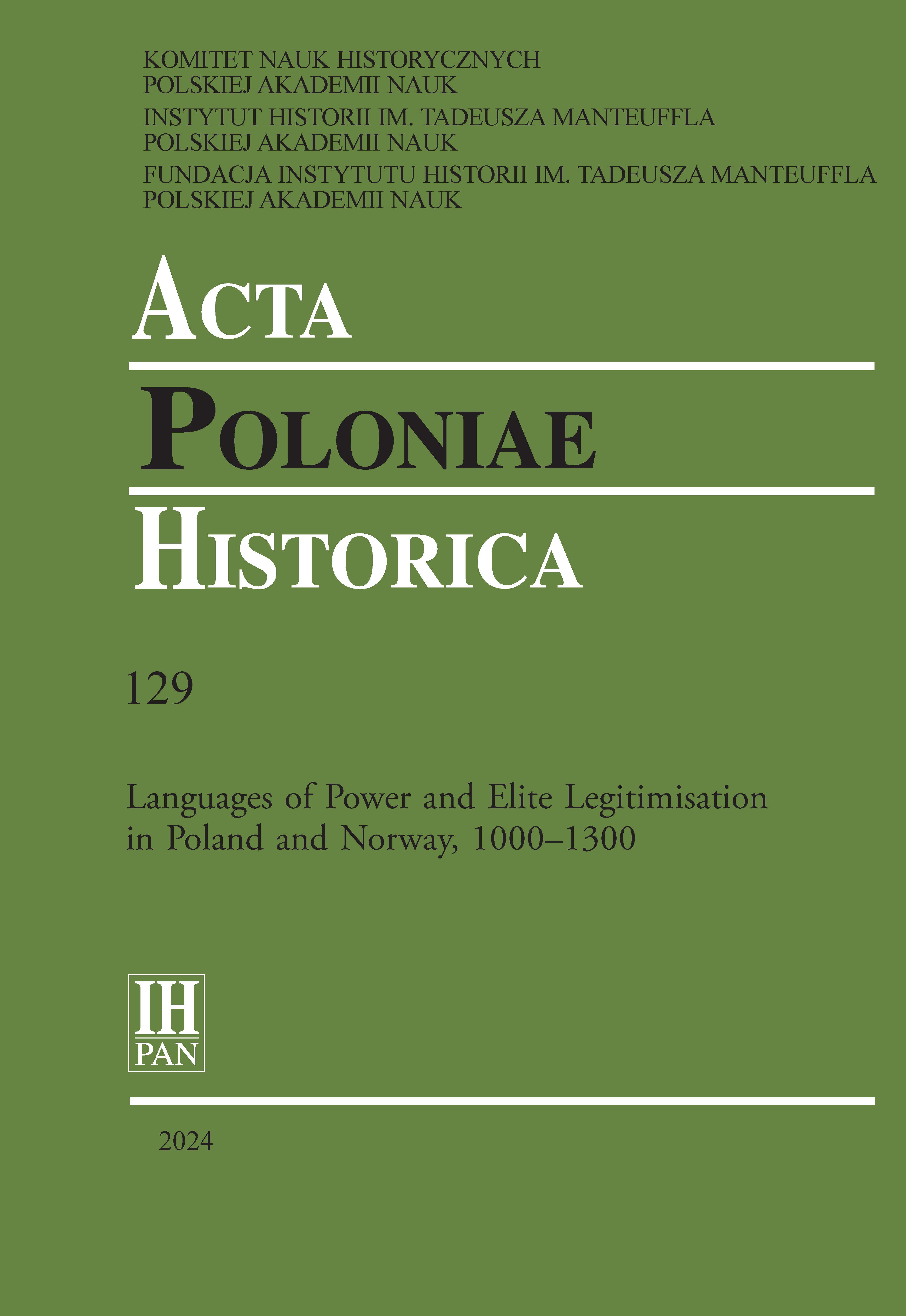Feasting and Elite Legitimisation in Poland and Norway: Propaganda, Political Economy, and Recognition in a Comparative Perspective, 1000–1300
DOI:
https://doi.org/10.12775/APH.2024.129.04Keywords
ideology, political economy, legitimation, elites, Poland, NorwayAbstract
This article explores the ways in which the political legitimacy of the elites was produced and demonstrated through feasting as it was practised in two peripheral high-medieval polities, Poland and Norway. By paying attention to the ways the political and moral economy of feasts and their use as a means of propaganda and political recognition were presented in contemporary sources, this article, through two case studies of peripheral languages of power and legitimisation, traces the similarities and differences in elite feasting in these disconnected contexts. Three aspects of political feasting are studied in comparison. First, the question of the supernatural charisma of rulers and ruling dynasties demonstrated through their – mythically and historically framed – ability to provide economic prosperity for their people and followers is examined. Second, we discuss how the rulers’ social power, entitlement, and ability enabled them to extract material resources from the rest of the elites and their subjects, how resources were then redistributed and what symbolic capital these endowed upon the elites. The third section focuses on high-status feasts at which foreign elites from European centres were entertained to secure international recognition of the peripheral elites and gain institutional advantages such as coronations, archepiscopal titles, etc.
References
Banaszkiewicz Jacek, Podanie o Piaście i Popielu. Studium porównawcze nad wczesnośredniowiecznymi tradycjami dynastycznymi (Warszawa, 2010).
Deptuła Czesław, Galla Anonima mit genezy Polski: Studium z historiozofii i hermeneutyki symboli dziejopisarstwa średniowiecznego (Lublin, 2000).
Dietler Michael and Brian Hayden (eds), Feasts: Archaeological and Ethnographic Perspectives on Food, Politics, and Power (Washington, 2001).
Jezierski Wojtek, Kim Esmark, Hans Jacob Orning, and Jón Viðar Sigurðsson (eds), Nordic Elites in Transformation, c. 1050–1250, iii: Legitimacy and Glory (New York, 2021).
Kjær Lars and Anthony J. Watson (eds), Feasts and Gifts of Food in Medieval Europe. Ritualised Constructions of Hierarchy, Identity and Community, special issue of the Journal of Medieval History, 37 (2011).
Krag Claus, Ynglingatal og Ynglingesaga: En studie i historiske kilder (Oslo, 1991).
Lincoln Bruce, Between History and Myth: Stories of Harald Fairhair and the Founding of the State (Chicago, 2014).
Monclair Hanne, Lederskapsideologi på Island i det trettende århundret: en analyse av gavegivning, gjestebud og lederfremtoning i islandsk sagamateriale (Oslo, 2003).
Orning Hans Jacob, ‘Festive Governance: Feasts as Rituals of Power’, in Wojtek Jezierski et al. (eds), Rituals, Performatives, and Political Order in Northern Europe, c. 650–1350 (Turnhout, 2015), 175–208.
Sahlins Marshall, ‘Poor Man, Rich Man, Big-Man, Chief: Political Types in Melanesia and Polynesia’, Comparative Studies in Society and History, 5 (1963), 285–303.
Sahlins Marshall, Stone Age Economics (London, 2017).
Vercamer Grischa, ‘Der Akt von Gnesen – ein misslungenes Ritual oder höchste Machtdemonstration Bolesław I. Chrobrys um 1000?’, in Aleksander Paroń, Sébastien Rossignol, Bartłomiej Sz. Szmoniewski, and Grischa Vercamer (eds), Potestas et communitas. Interdisziplinäre Beiträge zu Wesen und Darstellung von Herrschaftsverhältnissen im Mittelalter östlich der Elbe (Wrocław, 2010), 89–110.
Viðar Pálsson, Language of Power: Feasting and Gift-Giving in Medieval Iceland and Its Sagas (Ithaca, NY, 2016).
Downloads
Published
How to Cite
Issue
Section
License
Title, logo and layout of journal are reserved trademarks of APH.Stats
Number of views and downloads: 534
Number of citations: 1



